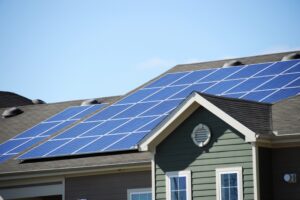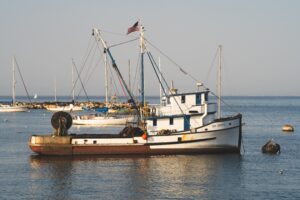Alberta 
Enbridge’s controversial Line 3 pipeline project ‘substantially complete,’ will be in service Oct. 1
“After more than eight years of many people working together, extensive community engagement, and thorough environmental, regulatory and legal review, we are pleased that Line 3 is complete and will soon deliver the low cost and reliable energy that people depend on every day,” said Enbridge chief executive Al Monaco in a news release. The last leg of the $9.3-billion project to be completed was the 542-kilometre Minnesota segment of the pipeline. Other segments of the pipeline had already been placed into service in Canada, North Dakota and Wisconsin, but in Minnesota Enbridge faced court challenges and protests by environmental and Indigenous groups. In June, Enbridge was handed a victory by the Minnesota Court of Appeals, which affirmed the approvals granted by independent regulators that allowed construction on the Minnesota leg to begin last December. Source: CBC News
Electricity Prices for Alberta
The Alberta power pool price averaged 9.445 cents per kWh in September 2021. This price is 1.219 cents higher than last month’s average. The pool price has averaged 8.707 cents per kWh over the last 12 months.
As of October 1, 2021, the forward market was predicting electricity prices for the calendar years of 2021, 2022, 2023, 2024 and 2025. These prices are 9.500, 8.800, 7.000, 6.100 and 5.800 cents per kWh respectively.
Gas Prices for Alberta
Direct Energy’s gas rate for September 2021 was $3.454 per GJ in Alberta. The October 2021 rate has been set at $4.079 per GJ. Alberta gas prices have averaged $3.231 per GJ over the last 12 months.
As of October 1, 2021, the forward market was predicting gas prices for the calendar years of 2021, 2022, 2023, 2024, 2025, and 2026. These prices are 4.85, 3.87, 3.35, 3.04, 3.00, and 3.03 cents per GJ respectively.
British Columbia 
Cheaper panels, interest in going green spurs boom in rooftop solar
 Solar energy systems account for a growing part of the business for Penfolds Roofing, which operates in the Greater Vancouver Area and B.C.’s Fraser Valley. “Lots of people are doing it because they drive an electric vehicle and they want to offset some of that cost,” said company president Shaun Mayhew. “And there’s other people who just think it’s the right thing to do for society and the environment.” Both reasons apply to Linda Seiffert, who is one of Mayhew’s clients. As president of Snow Cap Enterprises, a bakery and food distributor in Burnaby, B.C., she decided to use the company’s sprawling industrial rooftop for what’s believed to be the single largest commercial installation of solar panels in the province. More than 1,000 panels — each the size of a large flatscreen TV — will begin cranking out more than 500 megawatt hours a year when the project is finished in about a month’s time. The goal is to trim $5,000 from the company’s monthly $19,000 hydro bill, though Seiffert said the company won’t break even on the investment for a decade. Source: CBC News
Solar energy systems account for a growing part of the business for Penfolds Roofing, which operates in the Greater Vancouver Area and B.C.’s Fraser Valley. “Lots of people are doing it because they drive an electric vehicle and they want to offset some of that cost,” said company president Shaun Mayhew. “And there’s other people who just think it’s the right thing to do for society and the environment.” Both reasons apply to Linda Seiffert, who is one of Mayhew’s clients. As president of Snow Cap Enterprises, a bakery and food distributor in Burnaby, B.C., she decided to use the company’s sprawling industrial rooftop for what’s believed to be the single largest commercial installation of solar panels in the province. More than 1,000 panels — each the size of a large flatscreen TV — will begin cranking out more than 500 megawatt hours a year when the project is finished in about a month’s time. The goal is to trim $5,000 from the company’s monthly $19,000 hydro bill, though Seiffert said the company won’t break even on the investment for a decade. Source: CBC News
Ontario 
Industrial plastic is spilling into Great Lakes, and no one’s regulating it, experts warn
As the people of Toronto flocked to the Lake Ontario waterfront to swim, Chelsea Rochman’s students at the University of Toronto were throwing plastic bottles with GPS trackers into the water. Using information from the tracking bottles, they chose spots to put in Seabins — stationary cleaning machines that suck in water all day and trap any garbage and debris — at marinas along the waterfront.
An estimated 10,000 tons of plastic waste are getting into the Great Lakes every year, threatening one of the largest reservoirs of freshwater on the planet that supports nearly 50 million people in Canada and the U.S. A 2021 study on seven fish species in Lake Ontario and Lake Superior found “the highest concentration of microplastics and other anthropogenic microparticles ever reported in bony fish.” While the plastics industry says it’s working on the problem through industry-led initiatives, advocates say there’s a lack of government regulations to address this kind of pollution. Source: CBC News
Electricity Prices for Ontario
The Hourly Ontario Energy Price (HOEP) was an average of 2.924 cents per kWh in September 2021. This price is 1.124 cents lower than last month’s 4.048 cents per kWh. The twelve month moving average was 2.034 cents per kWh up to September 2021.
The Actual Rate for the Global Adjustment rate Class B for August 2021 was set at 4.599 cents per kWh. The Global Adjustment is an additional charge paid by non-regulated customers. (Source: IESO)
Saskatchewan 
Regina ban on plastic bags at checkouts to go into effect in February
 Regina residents won’t be able to get plastic bags at the checkout counter beginning Feb. 1, 2022. Regina city council had passed the bylaw ban in July of 2020 and it was to go into effect in August, but it was delayed because of the pandemic. The bylaw covers food service, retail and service businesses, which includes everything from grocery stores to retailers to street vendors. You will still be able to use plastic bags for some items such as bulk foods, fruits and vegetables. Regina is also planning to implement a green bin food and yard waste program in 2023. It was also delayed by the coronavirus pandemic. About 2,800 households are currently taking part in a pilot for that program. City administration say organic material accounts for 50 per cent of waste in the average person’s garbage cart, and that it will be compostable in the upcoming program. Source: CBC News
Regina residents won’t be able to get plastic bags at the checkout counter beginning Feb. 1, 2022. Regina city council had passed the bylaw ban in July of 2020 and it was to go into effect in August, but it was delayed because of the pandemic. The bylaw covers food service, retail and service businesses, which includes everything from grocery stores to retailers to street vendors. You will still be able to use plastic bags for some items such as bulk foods, fruits and vegetables. Regina is also planning to implement a green bin food and yard waste program in 2023. It was also delayed by the coronavirus pandemic. About 2,800 households are currently taking part in a pilot for that program. City administration say organic material accounts for 50 per cent of waste in the average person’s garbage cart, and that it will be compostable in the upcoming program. Source: CBC News
Manitoba 
Pulling the plug: Manitoba government will no longer set electricity rates
Premier Kelvin Goertzen said the government would let Manitobans have their say on Manitoba Hydro rates through a public hearing, rather than leaving the decision to itself. Last year, the Progressive Conservative government decided unilaterally to raise electricity rates by 2.9 per cent, bypassing the usual practice of Hydro asking for a rate increase and then the Public Utilities Board having the final say. The last rate increase, which took effect in December 2020, was tucked into that year’s Budget Implementation and Tax Statutes Amendment Act. Goertzen said Hydro would have to put forward its next rate request through the PUB. He said the Crown corporation would come forward afterwards with proposed rate adjustments for the next three years, but the PUB is not required to set multiple years of electricity prices at once. Source: CBC News
New Brunswick 
Energy efficiency programs have big impact for New Brunswick homes and businesses
 October 6 is National Energy Efficiency Day and NB Power is marking the day by recognizing the success of New Brunswick homeowners and businesses who have saved over $224 million in lifetime energy costs through NB Power’s energy efficiency programs since they were launched in 2015. Almost a third of all households (90,911) in New Brunswick are saving money, lowering their environmental footprint, and living more comfortably because of energy efficiency upgrades. This includes almost 2,300 low-income households who have received energy retrofits and are saving hundreds of dollars on their annual energy bills. Since 2015, 965 businesses have completed projects with the help of efficiency incentives for businesses of all sizes and types, including industrial facilities. Source: NB Power
October 6 is National Energy Efficiency Day and NB Power is marking the day by recognizing the success of New Brunswick homeowners and businesses who have saved over $224 million in lifetime energy costs through NB Power’s energy efficiency programs since they were launched in 2015. Almost a third of all households (90,911) in New Brunswick are saving money, lowering their environmental footprint, and living more comfortably because of energy efficiency upgrades. This includes almost 2,300 low-income households who have received energy retrofits and are saving hundreds of dollars on their annual energy bills. Since 2015, 965 businesses have completed projects with the help of efficiency incentives for businesses of all sizes and types, including industrial facilities. Source: NB Power
Prince Edward Island 
Local company scores $55M solar power contract for Summerside
A company in eastern P.E.I. has won the contract to build a 21-megawatt solar power plant for Summerside, P.E.I. The project will cover about 30 hectares in solar panels and include battery storage so the facility can store electricity for when it’s needed when the sun isn’t shining. The $55-million to build it went to Aspin Kemp, of Montague. It’s a big project for the company, and particularly important during the pandemic — when bidding on work in other parts of the world comes with added complications. Company CEO Jason Aspin said the experience of building such a large solar farm will help the company move into other markets. Source: CBC News
Québec 
Caisse to sell off remaining oil assets by next year
Caisse de dépôt et placement du Québec says it will divest all of its oil investments by next year as part of the pension plan’s plan to help combat climate change by cutting its carbon footprint in half by 2030. The province’s public pension fund unveiled its climate change strategy on Tuesday. A core plank of the policy is to divest all assets that produce crude oil products by the end of 2022. “The climate situation affects everyone, and we can no longer address it with the same methods used a few years ago,” CEO Charles Emond said. “We have to make important decisions on issues such as oil production and decarbonizing sectors that are essential to our economies.” Source: CBC News
Newfoundland and Labrador 
First Nations groups to participate in project to capitalize on liquefied natural gas
The Miawpukek First Nation and the First Nations Major Projects Coalition have signed an agreement to work toward increased equity participation in a project to earn revenue from liquefied natural gas. The agreement represents the first-ever Indigenous participation in an offshore energy project in the province. “The benefits by way of own source revenue generation and the jobs this project will create for our community members is significant and a big part of our plan for self-sufficiency,” said Miawpukek First Nation Chief Misel Joe in a statement. The project, called LNG Newfoundland and Labrador, involves building a central gas hub near the four oil producing fields in the Jeanne d’Arc Basin and a 600 km subsea pipeline to Grassy Point in Placentia Bay. The project would also require construction of a special ship to produce liquefied natural gas and then transport it to Europe. Source: CBC News
Nova Scotia 
Study finds Dartmouth startup’s special paint cut fishing boat fuel costs by 20%
 A $2.4-million study for Transport Canada found a new hull paint developed in Nova Scotia and used on fishing boats reduced fuel consumption by 20 per cent and lowered vessel noise by six to seven decibels. The results were released Monday by Graphite Innovation Technologies — the Dartmouth startup company that developed the coating — and Lloyd’s Register, the global ship certification society that verified the findings. The company uses graphene — a carbon-based nanomaterial — as the basis for its strong, slippery and non-toxic hull paint. It was tested on six Cape Islander lobster fishing boats in Nova Scotia over 18 months. Source: CBC News
A $2.4-million study for Transport Canada found a new hull paint developed in Nova Scotia and used on fishing boats reduced fuel consumption by 20 per cent and lowered vessel noise by six to seven decibels. The results were released Monday by Graphite Innovation Technologies — the Dartmouth startup company that developed the coating — and Lloyd’s Register, the global ship certification society that verified the findings. The company uses graphene — a carbon-based nanomaterial — as the basis for its strong, slippery and non-toxic hull paint. It was tested on six Cape Islander lobster fishing boats in Nova Scotia over 18 months. Source: CBC News
Nunavut 
Nunavut offering rebates to power homes and cabins with renewable energy
Homeowners can apply for rebates that cover $30,000 of the cost, while cabin owners will be able to access up to $5,000. The money for the two grants comes from the carbon tax collected by the federal government. The goal is to reduce Nunavut’s carbon footprint. The money will be offered as a rebate, meaning applicants need to foot the costs upfront. The Renewable Energy Cabin Grant is being administered by the Department of Environment, while the Renewable Energy Homeowners Grant is offered by the Nunavut Housing Corp. Source: Nunatsiaq News
Northwest Territories 
NWT leaders and youth await Canada’s climate path forward
A global temperature increase of 1.5 degrees is now all but guaranteed in the fairly near future, the Intergovernmental Panel on Climate Change concluded in its first large-scale assessment of climate change science since 2013. But in the Arctic and sub-Arctic, the figures are different. The IPCC’s new report suggests NWT winters could easily be 6C warmer, on average, by 2050 than they are now. That is a gigantic shift. It could have the impact of pushing Yellowknife’s mean temperature for a calendar year above 0C, which has not yet happened since the city was established. At the moment, the territory has three documents that primarily shape its climate change response. They are a strategic framework, an action plan, and an energy strategy. Meanwhile, the NWT has a carbon tax with a design unique to the territory but implemented only once the Liberal government made the territory’s then-ministers feel as though they had no choice. Minister Thompson said his territorial government is taking some steps to more readily include Indigenous people in the NWT’s climate change response. The NWT is projected to experience some of the most extreme changes the globe will endure in the years to come. Source: Cabin Radio
Yukon 
Single-use plastic shopping bags will be banned starting Jan. 30, paper bag ban to follow
After the New Year is rung in, the Yukon will be banning single-use plastic shopping bags. One year later, on Jan. 1, 2023, single-use paper bags will also be banned across the territory. The banning of single-use plastic and paper bags moves the Yukon into a “new era of more responsible waste management,” said a government press release. Single-use products, like plastic and paper bags, are “resource-intensive and their production, transportation and disposal cause pollution and emissions.” Source: Yukon News
